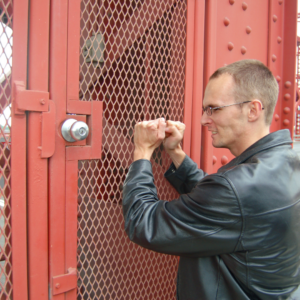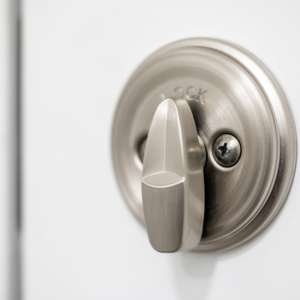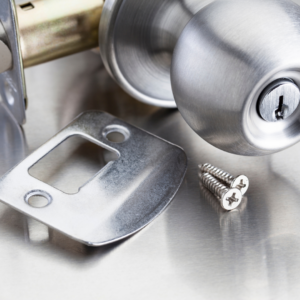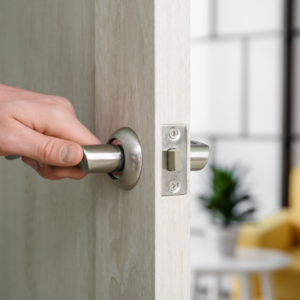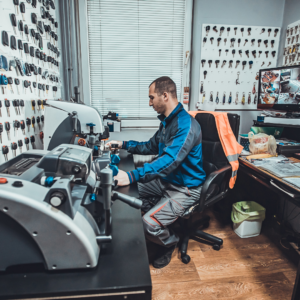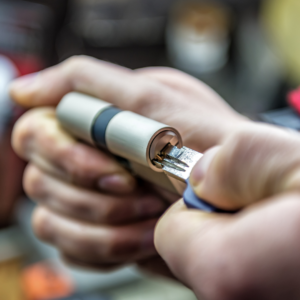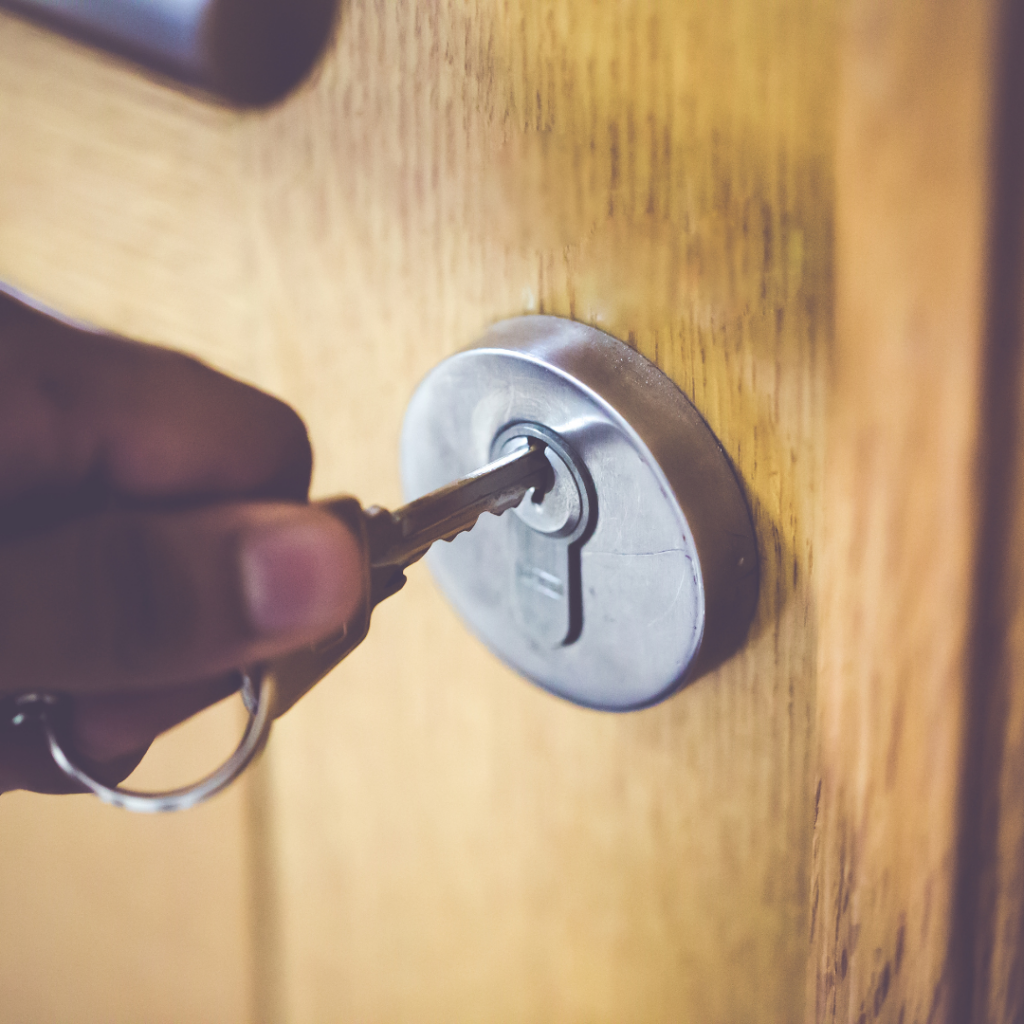
Top 5 Home Security Tips from Professional Locksmiths:
Home security is a topic of utmost importance for homeowners. Ensuring the safety of our homes and loved ones requires taking proactive measures to deter potential intruders and protect our properties. As professional locksmiths, we have extensive knowledge and experience in securing homes, and we’re here to share our top 5 home security tips.
By implementing these tips, you can significantly enhance the security of your home and gain peace of mind. From choosing high-quality deadbolt locks to installing security cameras and motion sensor lights, each tip is designed to address specific vulnerabilities and provide effective solutions.
Remember, home security is a collective effort that involves both physical measures and smart practices. So, let’s dive into our top 5 home security tips and empower you to make your home a safer place for you and your family.
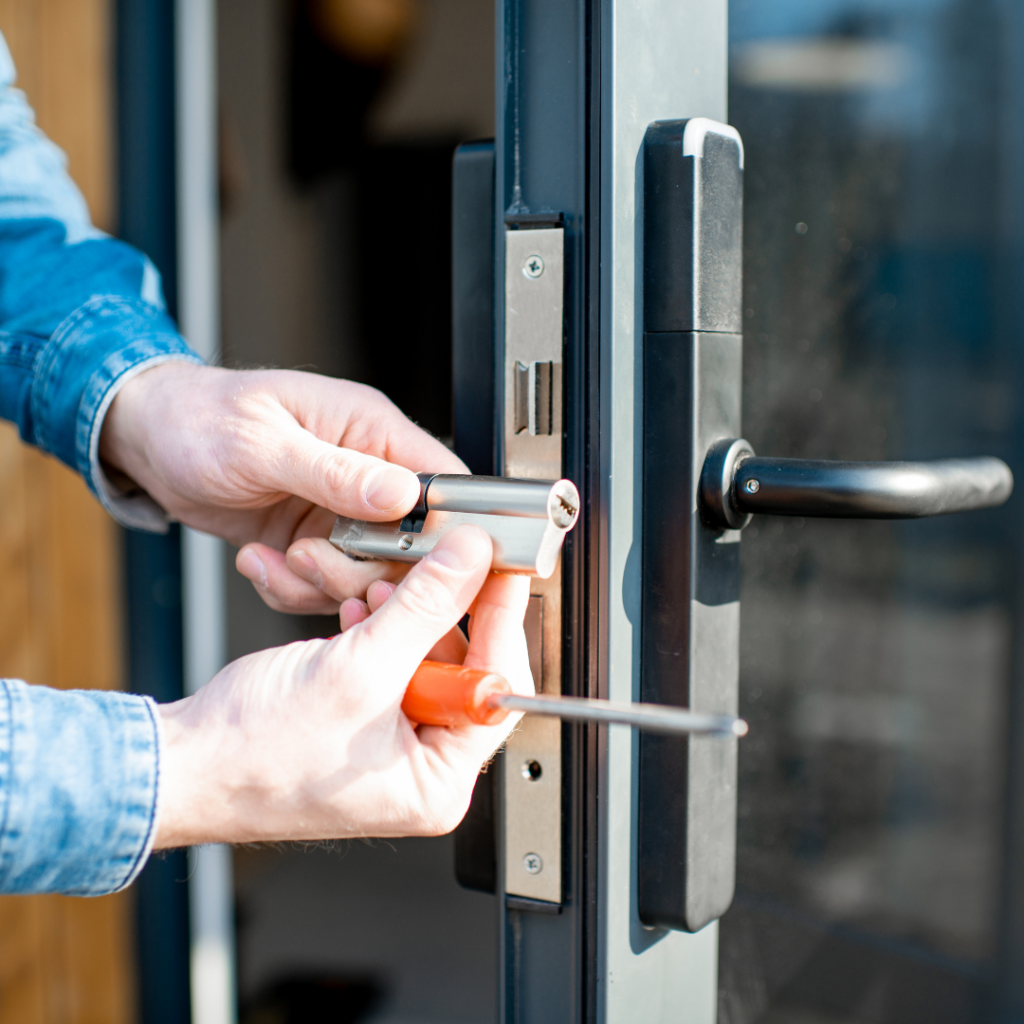
Tip 1: Choose High-Quality Deadbolt Locks
Deadbolt locks play a crucial role in preventing forced entry and securing your home. Unlike spring latch locks, which can be easily manipulated with credit cards or other tools, deadbolts offer superior resistance against unauthorized access. They are designed with a solid metal bolt that extends deep into the door frame, making it much harder for intruders to force the lock open.
Deadbolts provide added security due to their durability and reliability. They are constructed from sturdy materials, such as solid steel or brass, making them resistant to physical attacks and tampering. This makes it significantly more challenging for intruders to bypass the lock and gain entry to your home.
- Opt for Grade 1 Deadbolt Locks: Deadbolt locks are typically graded by the American National Standards Institute (ANSI). Grade 1 deadbolt locks offer the highest level of security and are recommended for residential use. They undergo rigorous testing for strength and durability, ensuring they can withstand significant force.
- Choose a Double Cylinder Deadbolt: Double cylinder deadbolt locks require a key to unlock from both the inside and outside of the door. While this provides enhanced security, it’s important to consider local building codes and safety requirements, as double cylinder locks may be prohibited in certain areas for emergency exit purposes.
- Look for Locks with Anti-Saw Pins: Some high-quality deadbolts feature anti-saw pins within the cylinder mechanism. These pins make it more difficult for intruders to saw through the lock, adding an extra layer of protection.
- Consider Locks with Reinforced Strike Plates: The strike plate is the metal plate on the door frame where the deadbolt slides into. Opt for deadbolts that come with reinforced strike plates or upgrade your existing strike plates with longer screws and additional reinforcement. This helps prevent the door frame from easily splintering or breaking during forced entry attempts.
- Consult with a Professional Locksmith: When in doubt, seek the advice of a professional locksmith. They can assess your specific security needs and recommend the most suitable deadbolt locks based on factors such as your door type, frame material, and overall security requirements.
By following these tips and investing in durable and secure deadbolt locks, you can significantly strengthen the security of your home and provide a formidable deterrent against intruders. Remember to prioritize quality, durability, and professional advice when selecting and installing deadbolt locks.
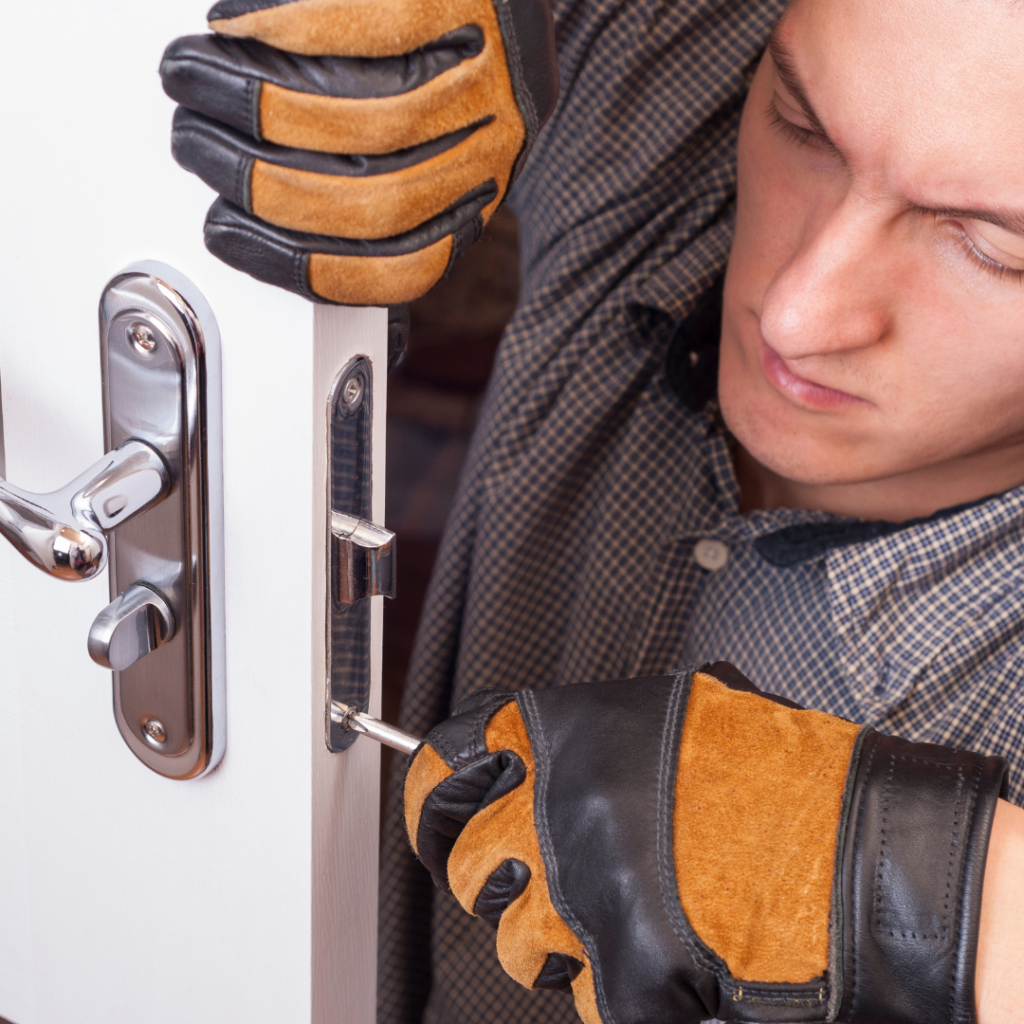
Tip 2: Reinforce Entry Doors and Windows
Entry doors and windows are common points of vulnerability in homes when it comes to security. They are potential targets for intruders seeking easy access. Understanding their vulnerabilities is essential for taking effective measures to reinforce and protect them.
Entry doors are often targeted due to weak or compromised locks, flimsy frames, or poor installation. Intruders may attempt to kick, force, or pry open the door to gain entry. Similarly, windows can be vulnerable to break-ins, especially if they have weak locks, thin glass, or are located on the ground floor or in secluded areas.
- Install Solid Core or Metal Entry Doors: Upgrade your entry doors to solid core or metal doors, which are more resistant to forced entry than hollow-core or wooden doors. These doors provide increased durability and make it harder for intruders to break through.
- Reinforce Door Frames and Hinges: Strengthen the door frame by adding reinforcement plates or strike plates made of sturdy metal. Reinforce the hinges with longer screws or hinge bolts to make them more resistant to forceful attacks.
- Add Door and Window Reinforcements: Install door and window reinforcements, such as security bars, grilles, or metal plates, to provide an additional layer of protection. These reinforcements can deter intruders and prevent them from easily breaking through the doors or windows.
- Upgrade Window Locks: Install secure window locks, such as window sash locks or key-operated window locks, to prevent unauthorized access. Ensure that all windows, especially those on the ground floor, are equipped with reliable locking mechanisms.
- Apply Security Films to Windows: Consider applying security films to windows, which are thick, transparent coatings that make the glass more difficult to break. These films can hold shattered glass together, making it harder for intruders to gain entry and reducing the risk of injury from broken glass.
- Install Window Security Bars or Grilles: Window security bars or grilles are visible physical barriers that can deter intruders. Ensure they comply with local building codes and regulations, and choose designs that allow for emergency exits in case of fire or other emergencies.
By implementing these reinforcing techniques, you can significantly improve the security of your entry doors and windows. Remember to consult with a professional locksmith or security expert for personalized advice and to ensure proper installation of any security enhancements.
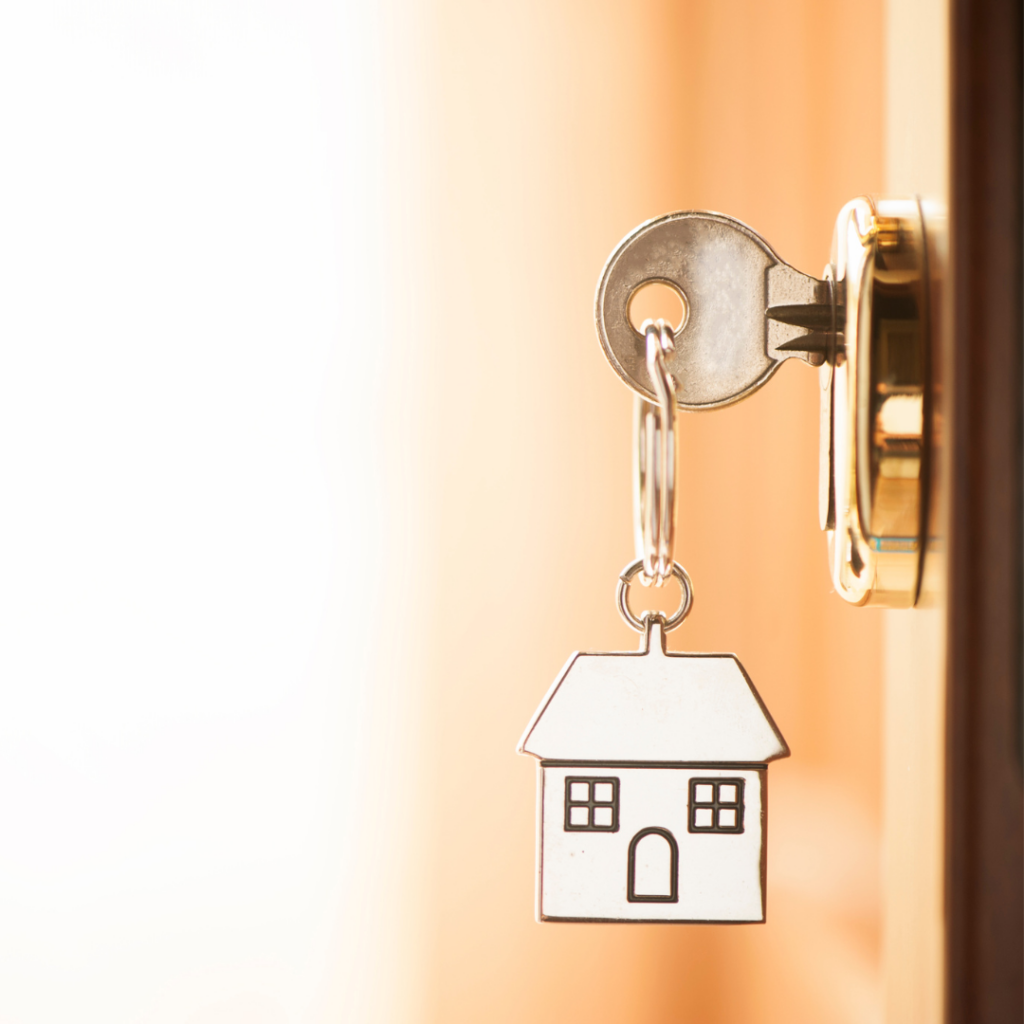
Tip 3: Lock Up Properly When Away
Consistently locking doors and windows is a fundamental practice that should never be overlooked when it comes to home security. Many burglaries occur simply because homeowners forget to lock their doors or windows, providing easy access to intruders. Emphasizing the importance of this simple habit can significantly enhance the security of your home.
Locked doors and windows act as a deterrent and create an additional barrier against potential intruders. They serve as the first line of defense, preventing unauthorized entry and buying valuable time in case of an attempted break-in. By making locking a habit, you establish a routine that becomes second nature, ensuring the safety and security of your home and loved ones.
- Create a Checklist: Develop a checklist of security tasks to perform before leaving your home. This can include items like locking all doors and windows, closing blinds or curtains, and activating the alarm system.
- Install Smart Locks: Consider installing smart locks that offer convenient features such as remote locking/unlocking capabilities. With a smart lock system, you can check and lock your doors from anywhere using a smartphone app.
- Enlist Help from Neighbors or Friends: Inform trusted neighbors or friends about your absence and ask them to keep an eye on your property. They can help ensure that doors and windows are secure and report any suspicious activity.
- Utilize Timers for Lights and Electronics: Use timers or smart home automation systems to turn on lights, radios, or TVs at different times throughout the day. This creates the illusion that someone is home, deterring potential intruders.
- Secure Spare Keys: Avoid hiding spare keys outside your home, as experienced burglars are familiar with common hiding spots. Instead, leave spare keys with a trusted neighbor or invest in a secure keyless entry system.
- Keep Valuables Out of Sight: Close curtains or blinds to prevent prying eyes from seeing valuable items inside your home. This reduces the temptation for potential burglars.
- Pause Mail and Newspaper Deliveries: Temporarily halt mail and newspaper deliveries, or arrange for a neighbor or friend to collect them. A pile of uncollected mail or newspapers can signal an empty home.
- Notify Security Company: If you have a home security system, notify your security company about your absence and provide emergency contact information.
Remember, maintaining the security of your home requires consistent vigilance and proactive measures. By implementing these reminders and strategies, you can ensure your home is secure even when you’re away, providing peace of mind and protection for your property.
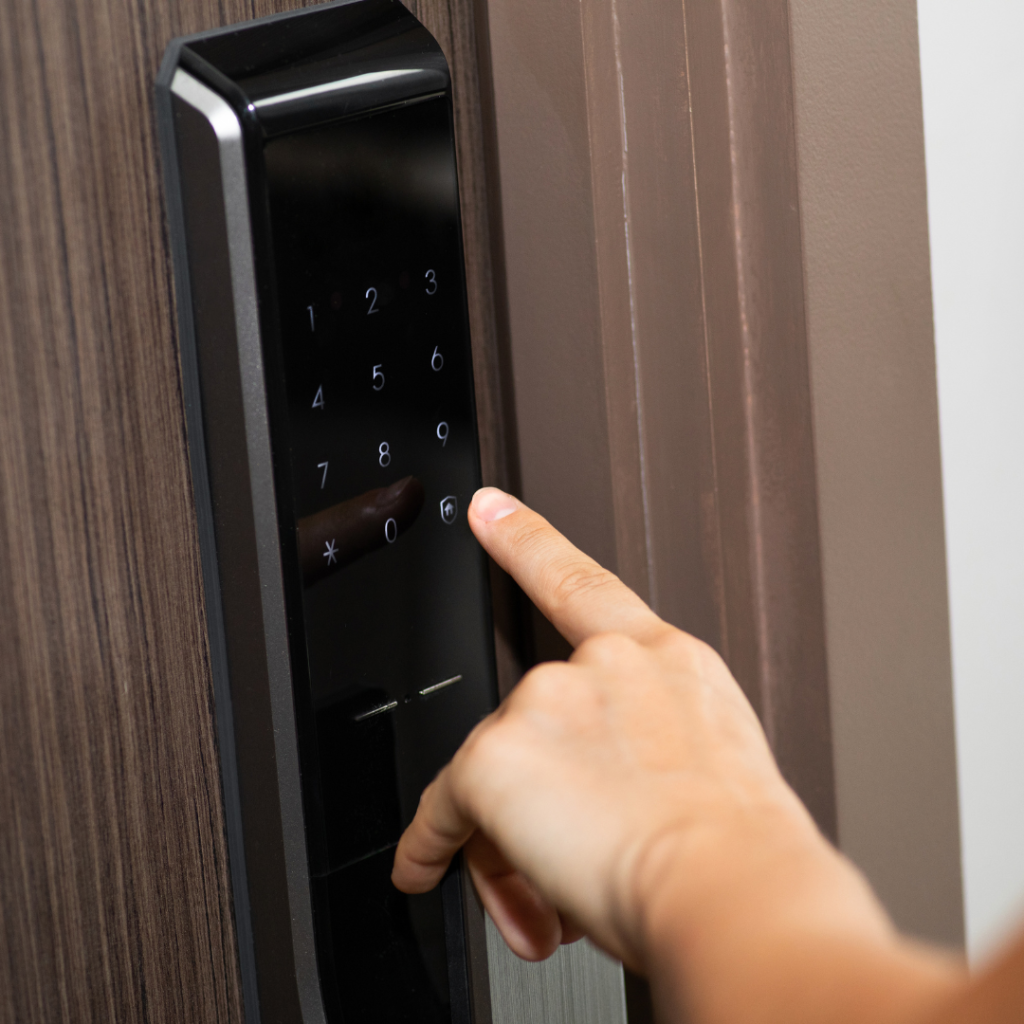
Tip 4: Secure Garage and Shed Doors
Garages and sheds are often overlooked when it comes to home security, yet they can pose significant security risks. These areas often contain valuable items such as tools, bicycles, and sometimes even vehicles. Intruders target garages and sheds because they are relatively easier to break into compared to the main house, providing access to valuable possessions and potentially compromising the overall security of your property.
Garages may have outdated or weak locks, while sheds might have flimsy doors or windows that can be easily forced open. Additionally, since these structures are often located at the perimeter of the property, they may provide convenient cover for burglars to attempt entry without attracting much attention. Therefore, it’s crucial to pay attention to the security of your garages and sheds to prevent unauthorized access.
- Install Strong and Secure Locks: Use robust, high-quality locks specifically designed for garages and sheds. Consider installing deadbolt locks, padlocks, or combination locks that are resistant to picking or tampering.
- Reinforce Doors and Windows: Strengthen the doors and windows of your garage or shed by reinforcing them. Add a metal or wooden bar to the track of overhead garage doors to prevent them from being forced open. Install security film or shatter-resistant glass on windows to make them more difficult to break.
- Upgrade to Solid Doors: If your garage or shed has a weak or hollow door, consider upgrading to a solid-core or metal door. These doors provide better resistance to physical attacks and make it harder for intruders to gain entry.
- Secure Garage Door Openers: Ensure the security of your automatic garage door opener by changing the default access code and keeping the remote in a secure location. If possible, use a smart garage door opener that allows you to monitor and control access remotely.
- Install Motion-Activated Lighting: Install motion-activated lighting around your garage and shed to deter potential intruders. Well-lit areas make it more challenging for burglars to go unnoticed.
- Implement Alarm Systems or Security Cameras: Consider installing an alarm system or security cameras specifically designed for garages and sheds. These systems can provide an additional layer of protection and serve as a deterrent to potential intruders.
- Secure Outdoor Storage Units: If you have outdoor storage units or containers, such as tool sheds or bike sheds, ensure they are properly secured with robust locks and reinforced doors.
Remember, securing your garages and sheds is crucial for protecting valuable items and maintaining the overall security of your property. By implementing these suggestions and investing in adequate security measures, you can significantly reduce the risk of unauthorized access and potential theft.
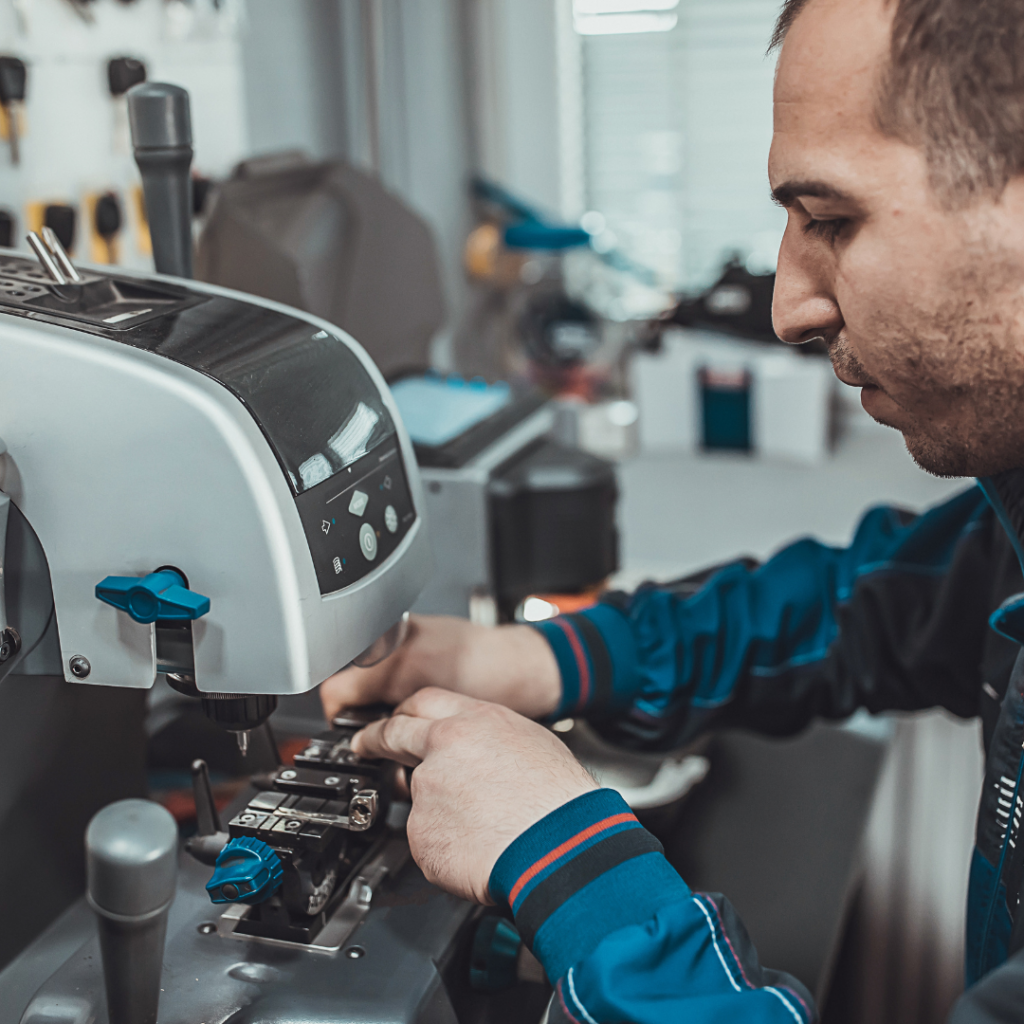
Tip 5: Consult with a Professional Locksmith
Professional locksmiths possess specialized knowledge and expertise when it comes to assessing and enhancing home security. They have in-depth understanding of various types of locks, security systems, and techniques used by burglars. With their experience, locksmiths can effectively evaluate the vulnerabilities of your home and recommend appropriate solutions to enhance its security.
Locksmiths are skilled in identifying weak points in your doors, windows, and overall security infrastructure. They can assess the quality and functionality of your locks, recommend upgrades if needed, and suggest additional security measures tailored to your specific requirements. Whether it’s reinforcing doors, installing advanced locks, or integrating sophisticated security systems, locksmiths have the knowledge and tools to provide comprehensive solutions.
When it comes to home security, it’s always beneficial to seek personalized advice and services from a professional locksmith. Each home has unique security needs based on factors such as location, property layout, and individual preferences. By consulting a locksmith, you can gain valuable insights and customized recommendations specific to your home.
Locksmiths can offer guidance on the most effective security measures for your property, taking into account your budget and desired level of protection. They can assess your existing security systems, provide maintenance and repair services, and even install new locks or security devices with precision and expertise.
Furthermore, locksmiths stay up to date with the latest advancements in security technology and industry trends. They can inform you about cutting-edge solutions that can further enhance the security of your home. By leveraging their knowledge and experience, you can make informed decisions and implement robust security measures to safeguard your property and loved ones.
In conclusion, professional locksmiths are trusted experts in assessing and enhancing home security. Their specialized knowledge, skills, and personalized approach make them invaluable resources for homeowners seeking to fortify their properties. By consulting a locksmith, you can tap into their expertise and ensure that your home is equipped with the most effective security solutions available.
Conclusion
By following these top 5 home security tips, you can significantly enhance the safety of your home and create a secure environment for your loved ones. Remember, home security is an ongoing effort that requires regular maintenance, updates, and proactive measures. Don’t hesitate to reach out to a professional locksmith for their expertise and assistance in safeguarding your home. Stay vigilant, prioritize security, and enjoy the peace of mind that comes with a well-protected home.



